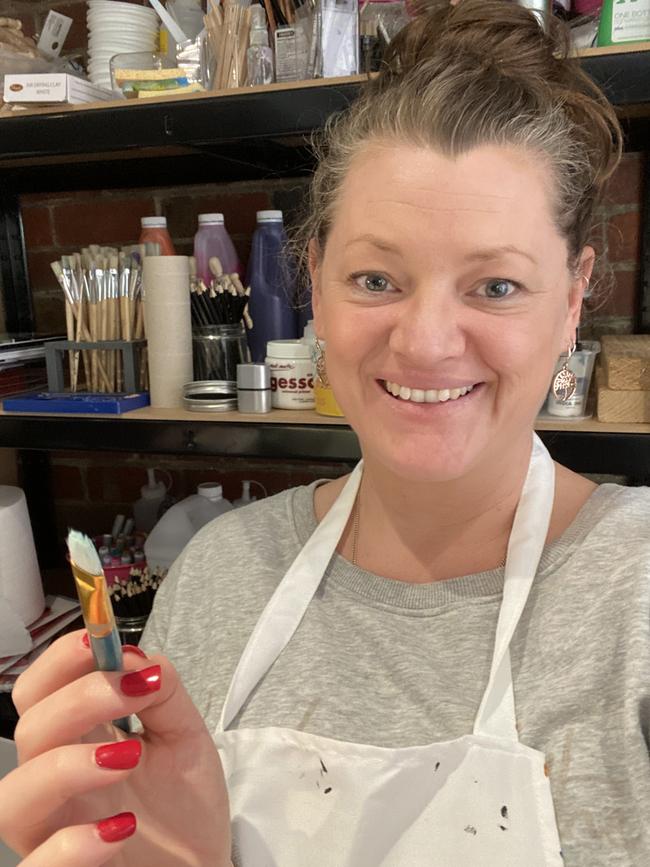Australian workers’ mental health risk at worst level since onset of Covid
Australian workers’ mental health risk is at the worst level since the start of the Covid pandemic. See why and when to seek help.
Careers
Don't miss out on the headlines from Careers. Followed categories will be added to My News.
Workers’ mental health has hit it its lowest level since the start of the pandemic, as Aussies buckle under cost-of-living pressures.
Seventy-eight per cent of working Australians have a high or moderate mental health risk, according to global health care leader TELUS Health. This is the worst ranking since the early days of Covid-19, when the mental health risk spiked at 87 per cent.
Cost of living is largely responsible for the decline in mental wellbeing, with almost half of Aussie workers overwhelmed by debt and unsure about their financial future, TELUS reveals.
Silent suffering
With many yet to feel the pinch of fixed interest rate terms ending, TELUS Health senior vice president and managing director Jamie MacLennan predicts a further decline in mental health in coming months.
He fears workers most at risk will be too embarrassed to seek the help they desperately need.
“We know the stigma (around) mental health but there’s a significant stigma to do with financial health as well,’’ MacLennan says.
“The people that are most impacted (by financial stress) and need the most help are the ones least likely to reach out and get it.’’
Australia’s worker shortage and the implication that those struggling to make ends meet can secure a higher-paying role elsewhere is doing little to ease mental anguish, MacLennan says.
“For the vast majority of workers, whatever salary increases they manage to get are being eaten up by cost-of-living pressures, let alone what’s happening with their interest rates and mortgages,’’ he says.
“That sentiment that you could go and get a higher paying job does a fantastic disservice to individuals, and society at large, because it’s far too simplistic for most people’s situation.’’

‘A bit scary’
Despite operating three businesses, single parent Sharon Westin struggles to make ends meet and often requires government help to stay afloat.
The owner of Sharon Westin Graphic Design, who also teaches kids’ art and hosts art meditation classes, say the stress of managing her finances has taken a severe toll on her mental wellbeing. Her physical health has also been impacted, as she can no longer afford a visit to the GP.
“I’ve got two teen boys that I have (custody of on a) two weeks on, two weeks off (arrangement) and, when I don’t have them, I try not to do any grocery shopping and just eat what I have here (at home),’’ she says.
“I’ve had to borrow money from a family member … and look into government grants … because I can’t afford to pay all of my bills.
“It is a bit scary but I try to stay positive. So many people are going through this at the moment.’’
Reducing debt traps
Workers struggling to meet their financial obligations often turn to short-term credit, payday loans and buy-now-pay-later schemes that lead to compounding debt and increased stress, says Rob Dunn from payroll platform Employment Hero.
Employment Hero recently launched Swag, an employment “superapp’’ that gives workers real-time access to pay through its earned wage tool, InstaPay.
“Tools like InstaPay give employees control over how, when and where they receive their pay,” Dunn says.
“Instead of having to wait weeks or months between paydays, employees can access their earned wages when they need it – and avoid relying on high-interest credit to bridge the gap.
“We want to reduce the number of Australian workers using credit-trap products, as we know from our research that the stress these sorts of solutions bring can distract people in life and at work.”

Signs of distress
The effect of financial stress on worker wellbeing cannot be underestimated, says psychologist Carly Dober, from Headspace App.
Research from the guided meditation app reveals almost two in five Aussie workers have felt “extremely stressed every day this year”.
Three-quarters of Australians regularly take advantage of mental health support offered in the workplace. But half are worried their company may cut back on wellbeing benefits if there is a recession, the research shows.
Dober says warning signs that stress has reached overwhelming levels include a “racing mind”, trouble sleeping that lasts longer than two weeks and a change in appetite.
She advises workers experiencing ongoing symptoms of stress to see their GP for a referral to a psychologist or, at the very least, seek help from family and friends.
Talking to your employer is also encouraged.
“When wages aren’t keeping up with inflation it can be very stressful,” Dober says.
“Everyone has their worries. But if you find your worries are taking a lot more mental space than usual and you can’t stop thinking about them, or if your sleeping is being affected and you feel exhausted, then get help.”
Stress at work
•38 per cent of workers say they have felt extremely stressed every day this year.
•Economic uncertainty has the biggest impact on Australians’ mental health at work.
•Almost one in four Australians dread work a couple of days a month; a core reason for this is they feel overwhelmed by expectations to take on more job responsibilities.
•Nearly half of Australians worry their company will cut back on mental health support and benefits if there is a recession.
Source: Headspace App
Originally published as Australian workers’ mental health risk at worst level since onset of Covid


